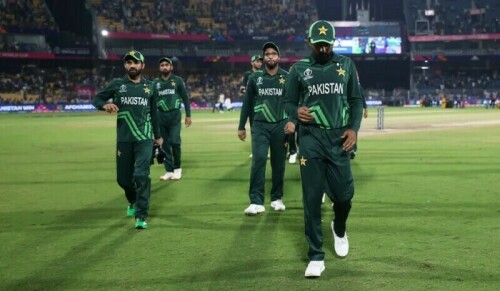
Anyone following the cricketing affairs of the subcontinent over the past decade or so will agree that the cricket boards have got their priorities horribly wrong. Irrespective of the fact that one of them is a World Cup champion, another one has played two successive World Cup finals and the third one has qualified for the semi-final each time the World Twenty20 has been played, it is clear that cricketing politics rather than a genuine concern for the health of the game has been the guiding force.
The latest episode in this regard is the Pakistan Cricket Board (PCB)’s refusal to grant no objection certificate (NOC) to its players that would allow them to participate in the 2nd edition of the Bangladesh Premiere League (BPL). Regardless of PCB’s official stance that the Bangladesh Cricket Board (BCB) has not followed the protocol, it is obvious that the actual reason behind PCB’s action is the BCB’s refusal to give a solid commitment to the PCB regarding their cricket team’s tour to Pakistan. In fact, this specific issue has assumed such importance that the relations between the two cricket boards — which have been extremely cordial since the 1980s — are turning sour.
It must be remembered that the PCB played an important role in enabling Bangladesh to gain the coveted Test status. Similarly, the PCB supported the candidacy of Bangladesh’s Mustafa Kamal for the post of International Cricket Council (ICC) vice-presidency. Just last year, the PCB released its top players for participation in the BPL’s first edition. Keeping this background in mind, the PCB perhaps feels that the BCB has a duty to oblige the PCB at this time and that it has every right to react if the BCB does not do so.
The current situation is a confirmation that decisions based on reasons other than cricket can bring consequences that can have negative repercussions. It is no secret that the support that came from the cricket boards of the subcontinent for Bangladesh getting Test status was not based on their cricketing credentials, as is evident from their progress over the course of this period; rather, it was motivated by the fact that the so-called ‘Asian bloc’ will have an extra vote at the ICC. The fact that this extra vote has not yet been utilised to bring about any constructive development is a different matter altogether.
Similarly, the decision to side with Mustafa Kamal in his efforts to become the vice president of the ICC again cannot be justified in cricketing terms. Despite having remained president of the BCB, there wasn’t any significant progress witnessed as far as the self-proclaimed Tigers’ results at the international level are concerned. It is clear that the cricket administrators of the subcontinent wanted their ‘own’ man at the helm rather than the ‘most suitable’ candidate.
It is fair to say that the much publicised ‘Asian bloc’ has as yet not done anything worthwhile to enhance the overall health of the game. The PCB — in its own capacity — has miserably failed to play a constructive part.
Following India’s refusal to tour Pakistan after the Mumbai attacks, the PCB convinced the Sri Lankan team to come and play in Pakistan in 2009. Similar to what the PCB is doing at present in the case of Bangladesh, the Sri Lankans were also reminded about how Pakistan helped them when the Australians and the West Indians had refused to tour the war torn island nation during World Cup 1996; however, what transpired during that 2009 Sri Lankan tour is something that will be noted in the annals of Pakistan cricket as the saddest episode that has ever happened. The Sri Lankan team was attacked by gunmen and they were lucky to escape only with bullet wounds. This was despite the assurances of state-level security that were promised to them by the PCB.
With such a bloody history and a tale of false promises, how can the PCB expect any cricket board — let alone the BCB — to trust them? Even if the BCB decides to oblige them, will it be fair to the Bangladeshi cricketers to force them to come to a country where there are genuine security threats? Can they be expected to give their hundred per cent in such an uncertain situation? Also, the cricket tour to any country is not just about playing cricket.
It is also about stepping out of the five-star hotels, getting away from the gun toting security personnel, witnessing the culture and interacting with local people. It is understandable that the people of Pakistan desperately want international cricket to return to Pakistan and the PCB chief sees it as an opportunity to win their hearts; however, being in a position of responsibility, he will have to practice a bit of restraint.
Law and order situation of the country has surely not improved in comparison to 2009 and hence pressurising foreign teams to tour Pakistan at this time is not doing anything to enhance PCB’s credibility.
The general elections are just around the corner and therefore a wiser approach would be to wait for the situation to settle down and then devise a sensible course of action.
Email: syed.mustafa@hotmail.com Twitter: @MustafaFairplay













































Dear visitor, the comments section is undergoing an overhaul and will return soon.